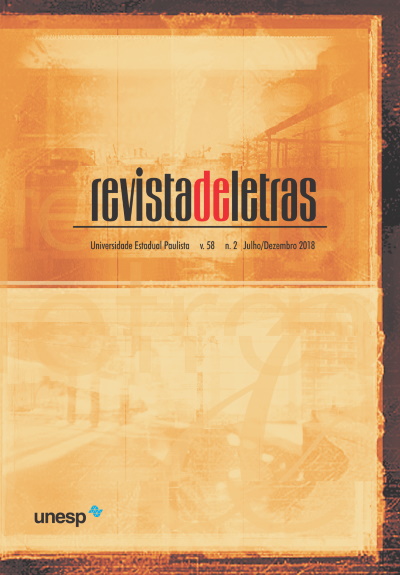Literary representation as a political act: the Carolina Maria de Jesus’ pedagogical project to her characters in the 1963 novel Pedaços da Fome
Keywords:
Carolina Maria de Jesus, Novel Genre, Contemporary Brazilian Literature,Abstract
Literature, as a political act, places itself as a space for the construction of the identity of groups inserted in a particular social context. In the Brazilian literary contemporaneity there is a growing movement in favor of the construction of spaces of multiple voices, which are sociopolitical and culturally marginalized. Carolina Maria de Jesus, black woman, slum dweller and with only two years of study, is such an example. From the analysis of the novel Pedaços da fome, published in 1963, it becomes possible to observe the glimpse of the marginal to the non-marginal, expressed, above all in the configuration and relation of Carolina with her characters Maria Clara Fagundes and Paulo Lemes. The choice of the novel genre, as well as its textual options, which also do not occur randomly, there is intrinsic to the textual weaving to the pedagogical project, which the writer will put into practice. They are discussions through the theoretical basis as Bastos (2006), Candido (2004), Robert (2008), among others.
Downloads
Published
Issue
Section
License
Os manuscritos aceitos e publicados são de propriedade da Revista de Letras. Os originais deverão ser acompanhados de documentos de transferência de direitos autorais contendo assinatura dos autores.
É vedada a submissão integral ou parcial do manuscrito a qualquer outro periódico.
A responsabilidade do conteúdo dos artigos é exclusiva dos autores.
É vedada a tradução para outro idioma sem a autorização escrita do Editor ouvida a Comissão Editorial.

